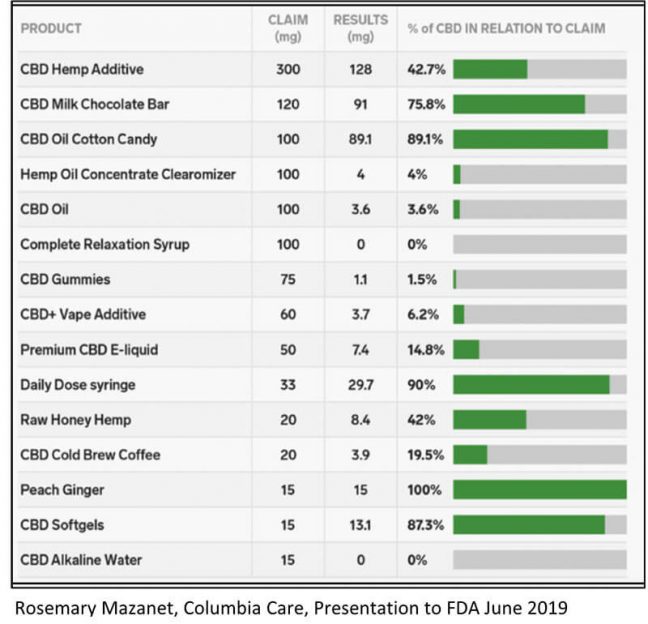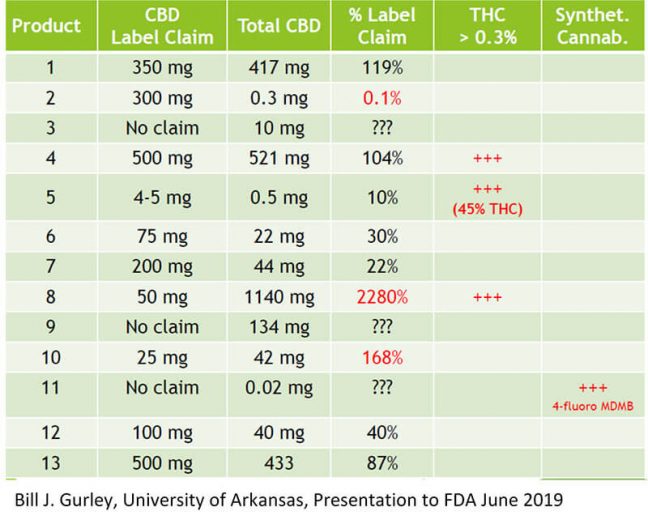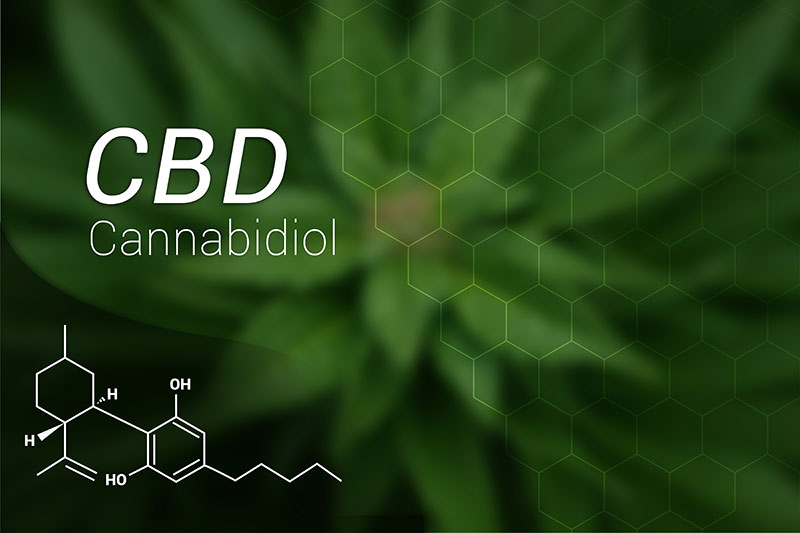sponsored content
One of the more important decisions a retailer will make is choosing which CBD manufacturer to work with, according to Golden, Colorado-based Panacea Life Sciences. For most products, retail buyers can make decisions based on price points and identifying which products will appeal to their customer base. Unfortunately, many CBD products that are routinely made will not meet retailer expectations.
Due to the rapid growth and lack of regulations in the CBD industry, quality manufacturing must not be taken at face value. Many different consumer advocate groups are finding that a substantial percentage of CBD products being sold today are failing quality checks for CBD and Tetrahydrocannabinol (THC) content. As a standard rule, all CBD-hemp products must be less than 0.3 percent THC by weight.
Quality manufacturing has been an issue since the birth of the CBD industry. Starting in 2015, the Food and Drug Administration (FDA) has issued more than 40 warning letters to companies whose products do not contain stated label quantities of cannabidiol. As of 2019, the situation has frustratingly not improved; in fact, more than 66 percent of products being sold today would fail a quality check on CBD content, regardless of the type of product.

Additionally, many products being sold as dietary supplements or food items in retail outlets exceed the allowable level of THC of 0.3 percent. The THC levels are problematic for retailers as such products are defined as marijuana and are therefore illegal. Consumers of such products also will be exposed to higher quantities of THC which may cause mental impairment and result in a positive drug test, which may lead to job termination for those working for employers that perform drug screening. Another major issue is that some companies use synthetic cannabinoids to manufacture their products in order to save on costs. Synthetic cannabinoids will exert different biological effects in people than those of CBD derived from the industrial hemp plant.

The FDA is also seeking more information on identity standards on varying CBD products (such as full-spectrum or broad-spectrum oils) and how these products are derived. An initiative has been launched by the University of Mississippi to sample commercial CBD products to determine CBD and THC levels in 100 cosmetic products. The results are intended to be published in August 2020. So, while steps are certainly being taken to assess and regulate the rapidly growing CBD industry, the FDA has yet to issue clear guidelines for manufacturing CBD products.
Colorado, one of the nation’s leaders in the hemp industry, has recognized the large market potential for the hemp industry (expected to surpass $22B USD by 2022) and the coinciding need to institute regulatory framework to solve the quality control issue. The Colorado Hemp Advancement and Management Plan (CHAMP) brought together public and private industry leaders to evaluate how products are made, looking at each step in the process from seed, to manufacturing, to how products should be marketed. One recommendation that came out of these meetings regarding product quality is that all manufacturers need to be Good Manufacturing Practice (GMP)-certified after products are quality-control tested by accredited laboratories. It is anticipated that CBD manufacturers will be required to have GMP compliant processes and/or be GMP-certified by early 2021.
With regulations and measures still up in the air as the hemp CBD industry establishes itself in these early years, it can be difficult and confusing for retailers to ensure that they are buying quality and effective hemp products. In the meantime (until regulations are required), retailers can verify quality manufacturers by asking a few straightforward questions.
- Does the manufacturing company have full custody of their supply chain?
- Meaning that they have under their control the entire process from the plant biomass to final manufactured product. This vertical integration model is important as the process ensures the hemp plant grown by the company will have desired properties, be compliant to industrial hemp laws and provide the potential for full traceability from product back to the farm and strain grown.
- Are the manufacturers GMP-compliant or GMP-certified?
- Companies should be registered with the FDA as a food or dietary supplement manufacturer. Instituting a GMP process takes work and increases operational costs for the manufacturer, so while it may be reflected by retail prices, it also minimizes the risk of product recall due to failure to meet potency or purity standards.
- Are the manufacturers transparent with testing records for every product and product batch?
- Many companies address testing records through a scannable QR code on the product label. These QR codes allow retailers and customers access to the batch testing records which show that products meet quality standards for potency and purity. Another great sign that a company is focused on quality-controlled products is that reputable companies are often willing to open their doors and provide a tour for retail partners to highlight why their company should win the business.
- Does the manufacturer have a wide range of product categories?
- Since manufacturer verification will be somewhat time consuming, it may be ideal to search for CBD producers that manufacturer a wide range of product categories such as topicals, edibles, tinctures and tablets, to name a few.
Currently 25 percent of Americans have tried or are currently using some type of CBD product, and that number is expected to expand rapidly in the next few years. In fact, the CBD market has been forecasted to grow more than 40-fold in the next two to three years in the United States alone. While selecting the right CBD manufacturer may seem daunting, if not at least time consuming, using the basic guidelines and asking a few straightforward questions will allow retailers to identify quality manufacturers and capitalize on the CBD market.

